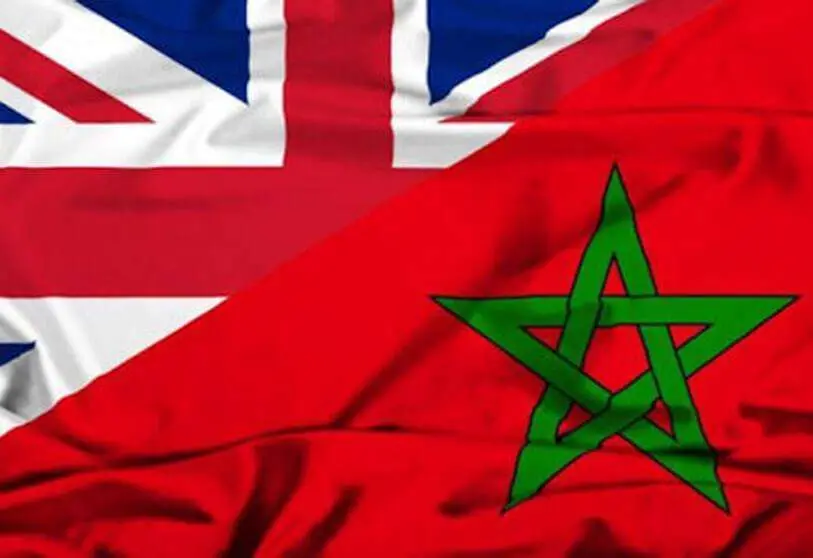La justicia británica rechaza la demanda contra el acuerdo de asociación entre Marruecos y Gran Bretaña

The administrative court of London rejected on Monday the legal action of the British NGO WSC, linked, according to various media, to the Polisario Front, which sought to revoke the trade partnership agreement between Morocco and Britain that came after the Brexit.
Through this verdict, the British judiciary reaffirms the validity of the partnership agreement between Morocco and the United Kingdom, which favours investment and trade on Moroccan territory. In this way, the trade pact signed by the North African country and the British in October 2019 after the exit of the United Kingdom from the European Union (EU) and which came into force in January 2021 is supported, allowing the commercial relationship between the two nations to be re-established once the clauses that served in terms of the existing links between the Alawite kingdom and the EU that applied in the particular case of Great Britain as in the rest of the EU countries ceased to be valid.
The ruling represents a new setback for certain attempts allegedly aimed at destabilising Morocco both politically and economically, as pointed out by various media such as the Moroccan news agency MAP and Al-Arab News.

The British government expressed its satisfaction with this judicial decision, which allows the development of the trade partnership with the North African country to continue. "We welcome the verdict. We will continue to work closely with Morocco to maximise the £2.7 billion of trade between our countries," said a spokesman for the UK Department for International Trade, as reported by MAP. "We look forward to continuing our exchanges with our Moroccan counterparts through the Association Council next year," he said.
The pact allows the establishment of a bilateral relationship that recovers the precepts embodied in the Morocco-EU Association Agreement that governed during the British permanence in the European institutions, guaranteeing trade exchanges between the two nations after Brexit, which now reach 2.7 billion pounds. A current agreement that means a guarantee for Moroccan and British companies undertaking economic and trade relations in all sectors of cooperation and covering the whole of the Moroccan kingdom.
According to media outlets such as Al-Arab, this court decision is a setback for Morocco's enemies such as the Polisario Front and represents a new support for the Alawi kingdom's position on Western Sahara, since the complaint filed against the trade agreement was mainly related to products from the so-called Southern Provinces of Morocco in the vicinity of the Sahrawi territory. The formula advocated by the North African country for the region is that of broad autonomy for Western Sahara under Moroccan sovereignty, respecting the postulates of the United Nations (UN). For months, this initiative has received the support of important countries such as the United States, Germany, the United Arab Emirates, the United Kingdom and Spain, which have pointed to it as the most serious, credible and realistic way of resolving the Saharawi conflict that has lasted more than 40 years following Spain's departure from the area as a colonial power.

Opposing this proposal is that of the Polisario Front, which advocates holding a referendum on independence for the Sahrawi people, which is difficult to achieve, according to several experts, and which has less international support, especially in this case the position of Algeria, the Polisario Front's preferred partner and Morocco's political enemy in the Maghreb region.
Various analysts see this decision by the British judiciary as a new political triumph for Morocco in its strategy of broad international recognition for its proposal regarding Western Sahara, which is aimed at reinforcing national territorial integrity and strengthening the area surrounding the Sahrawi territory in order to promote regional development in various fields such as the economy, infrastructure and social affairs.
Along these lines, the King of Morocco, Mohammed VI, highlighted the evolution of the Development Programme for the Southern Provinces in his speech on the occasion of the 47th anniversary of the Green March, a traditional event marking Morocco's entry into the then Spanish province of Western Sahara, which began on 6 November 1975, just as Spain's imminent departure brought the colonial era to an end. Morocco seeks to develop the southern part of the national territory and the surrounding area of Western Sahara in depth in order to generate well-being and wealth in the area and to assert the Kingdom's proposal for a solution to the Saharawi conflict.

This judicial decision can be interpreted as a sign of Britain's support for Morocco and a message that puts British national interests before the particular interests of certain organisations that could seek to annoy the Alawi kingdom and hinder its efforts to defend its national integrity.
In this way, Morocco continues to be seen as a very important political and economic partner in North Africa, as it is a gateway to the African continent's market and offers legal guarantees and stability that foster a good business and investment climate.
In the case of Britain, the British export petroleum products, lubricants, automobiles, electric motors, medicines, machinery, chemical and plastic products, clothing, electronics and household appliances to Morocco, and find in the Moroccan market a great option for the distribution of goods for the North African country and for the rest of the continental market. On the other hand, Britain imports clothing, textiles, electrical cables, natural and chemical fertilisers, fish, agricultural and food products, phosphoric acid and sanitary articles from Morocco.








